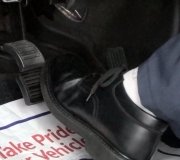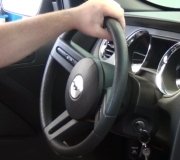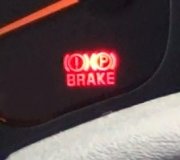1993 Plymouth Voyager 6 cyl Two Wheel Drive Automatic
I replaced my brake pads as they were getting worn down, they appeared to be worn evenly and rotors were in good shape. I replaced the pads and bled the system several times, but I could not gain pressure in the brake pedal when the vehicle was running, not running pressure was stiff as it was supposed to be.
It was then that it was determined my master cylinder needed to be replaced, so I purchased a new one and installed it according to directions. I then bled the system again with the vehicle off, and had perfect brake pressure. When I turn the vehicle on, pressure gradually decreases until pedal goes to the floor. If I pump the brakes enough pressure will build, but the van will not stop regardless of pressure, I tried to test drive it on my property and only the parking brake will stop my vehicle.
The fluid level is good, I don't see any liquid leaking from any brake lines or calipers, and I don't hear any air. The only symptom that might help clear up what the actual problem with my van might be that the brake pedal itself sounds as though it's pushing air somewhere when I push it down, whether it's coming in or going out I couldn't tell you. As well, when I am pumping the brake to try and build pressure with the vehicle on, the parking brake light comes on. That took a while to notice, as the park brake was always on when I was working with it, but on the test drive I noticed when the pressure is low, my park brake light is on, as it builds the parking brake light comes off, but I don't stop and no matter how much I pump the brake up, it doesn't help to stop my vehicle.
Does this problem sound like anything fixable? I researched the internet and tried every solution, nothing is working or giving me a clue as to where to go from here.
Monday, August 16th, 2010 AT 5:09 PM



